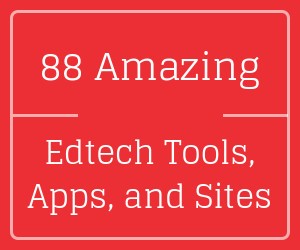29 Ways to Teach Students to Solve Math Problems with Division

Are you looking for ways to teach students to solve math problems with division? If so, keep reading.
1. Get the learner to use a calculator to reinforce the process of division. Get the learner to solve several division problems each day using a calculator.
2. Teach the learner that any number divided by one remains that number.
3. Provide all instructions, questions, and explanations in a clear, concise manner and at an appropriate rate for the learner.
4. Make sure that the language used to connect with the learner about division is consistent (e.g., “Divide the numbers.” “What is the divisor?” “What is the dividend?” etc.).
5. Make sure the learner has mastery of math ideas at each level before introducing a new skill level.
6. Teach the learner the concept of sets. Get the learner to practice dividing sets into two subsets, etc., to reinforce the concept of division.
7. Do not require the learner to learn more information than they are capable of learning at any time.
8. Teach the learner the ideas of more than, less than, equal, and zero. The use of concrete objects should enable the learning process.
9. Teach the learner why they are learning the concept of division. Give the learner concrete examples and chances for them to apply the concept in real-life situations.
10. Teach the learner number ideas and the relationship of number symbols to numbers of objects before requiring them to solve math problems involving division.
11. Give practice of division facts using an app or a hand-held educational device that gives instant feedback to the learner.
12. Give the learner a quiet space to work (e.g., “office,” study table, etc.). This should be used as a way to lessen distractions, not as a punishment.
13. Give the learner enjoyable math learning activities during free time in the classroom (e.g., computer games, math games, manipulatives, etc.).
14. Give the learner increased chance for help or assistance on academic tasks (e.g., peer tutoring, instructions for tasks sent home, frequent interactions, etc.).
15. Give the learner many concrete experiences to help them learn and remember math facts. Utilize popsicle sticks, tongue depressors, paper clips, buttons, fingers, etc., to form groupings to teach division facts.
16. Give the learner chances for tutoring by peers or teachers. Let the learner tutor others when they have learned a concept.
17. Give the learner self-checking learning resources. Require the learner to make corrections before submitting work.
18. Give the learner shorter math facts but give more of them throughout the day (e.g., four tasks of five problems each rather than one task of twenty problems).
19. Minimize the emphasis on competition. Competitive learning activities may cause the learner to hurry and solve division problems incorrectly.
20. Praise the learner for trying and finishing work. Place emphasis on the number of problems correctly solved. Urge the learner to see how many more they can successfully solve without help. Get the learner to keep a “private” chart of their math performance.
21. Praise the learner for correctly solving division problems: (a) give the learner a concrete reward (e.g., privileges such as leading the line, handing out learning materials, 10 minutes of free time, etc.) or (b) give the learner an informal reward (e.g., praise, handshake, smile, etc.).
22. Utilize pragmatic applications of division. Get each learner to bring in something that must be divided among the whole class.
23. Teach the learner to use resources in their surroundings to help them solve math problems (e.g., counting figures, counting numbers of objects, using a calculator, etc.).
24. Utilize daily drill learning activities to help the learner memorize division facts (e.g., written problems, flash cards, etc.).
25. Utilize task analysis on each problem to ascertain the point at which the learner is unable to finish the calculations correctly.
26. Complete the first problem or two of the task with the learner to make sure that they know the instructions and the operation appropriate to solve the problems.
27. Consider using Alexa for the Math Classroom.
28. Try gamifying your math lessons.
29. Consider using one of the apps and tools from our many math app lists:
9 Must-Have Apps and Tools for Kids Who Hate Math
10 Apps to Teach Preschoolers Math
20 Math Apps for Students of All Ages
Advanced Math Apps, Tools, and Resources for That We Love
Elementary School Math Apps, Tools, and Resources That We Love
Fraction Apps, Tools, and Resources That We Love
High School Math Apps, Tools, and Resources That We Love
Interactive Math for the Google Classroom
Math Apps, Tools, and Resources That I Would Use If I Were Still in the Classroom
Math Manipulatives Apps, Tools, and Resources That We Love
Middle School Math Apps, Tools, and Resources That We Love
Multiplication Apps, Tools, and Resources That We Love
PreK Math Apps, Tools, and Resources That We Love
YouTube Channels for the Math Classroom






